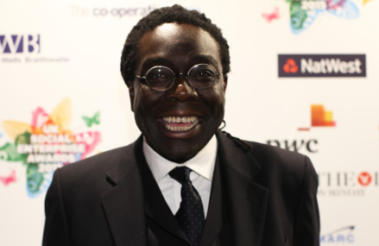Social enterprise should be moved from the Department of Digital, Culture, Media and Sport, because social enterprises are very different from charities, the Conservative Party Conference heard last night.
Victor Adebowale, who is chair of Social Enterprise UK and chief executive of Turning Point - which is both a social enterprise and a charity - was speaking at a fringe event at the Conservative Party Conference about the role of social enterprise.
The event, organised by SEUK last night, considered whether the Department for Business, Energy and Industry should have responsibility for social enterprise.
Adebowale said it is “hard to believe” that social enterprise is being “taken seriously” by government, when it is part of DCMS.
"It is like saying to a major financial institution that is delivering profits 'Sorry but your’re now the responsibility of DCLG,'" he said.
“If we are credible businesses we should be in business,” he said.
Different to charity
Adebowale also emphasised that social enterprise and charity were different.
“We need to understand that social enterprise is not the same as charity. We do business and we need different financial models,” he said.
Turning Point is a registered charity, but avoids describing itself as one. On its homepage the word ‘charity’ is used once in the footer, ahead of its charity number.
He said that the concept of a “triple bottom line” distinguishes social enterprises from other forms.
By this he means they have a “neutral or positive impact on the environment”, they make a “contribution to local community” and are “financially sustainable”.
He also said that “the problem with charitable giving is that it is not evenly distributed”, though he is not suggesting that every organisation should become a social enterprise.
Vision for the Conservative Party
George Freeman, MP for Mid Norfolk, said he felt that social enterprise fitted well with the "heartbeat of 21st century Conservatism".
Freeman told the event that younger generations felt discontent with the modern market-based economy, and that there was a negative stereotype towards Conservatives in this generation.
“If we don’t make Brexit a moment of domestic national renewal, that really inspires that generation, than I fear it will be the moment that this party ceases to be relevant, and we will be talking to ourselves," he said. "This is quite urgent.”
He said social enterprise offered the answer to many of these issues.
He said: “For those of us in the room who are Conservatives, we have a major challenge on our hands and the social enterprise sector goes right to the heart of solving 60 per cent of that – which isn’t bad.”
He said the Conservative party shared many values with the social enterprise sector.
He said: “We need to be the party of shared values and our economics can reflect the values that the vast majority of people in this country share. It seems to me that the social enterprise agenda captures so much of that.”
‘Capitalism that people have a stake in’
Freeman continued: “So if you want to drive public service reform, it seems to me that we need social enterprise, and allowing the people who love their service and champion their service to take on the ownership and take on responsibility for it. To be rewarded for it, but not with share prices, with being able to keep a little bit of the saving.”
He said: “We should reward the people who take responsibility, because I think it goes to the heart of creating leadership units in public services, and it goes to the heart of creating capitalism that people feel they have got a stake in.”
Freeman said that ”lastly in the same way that all good enterprise does, it embodies values, and that is what we urgently need in our society”.
He continued: “So for all those reasons, if you are in any doubt you are in the right meeting, I would suggest that this is the heartbeat of 21st century Conservatism. Social enterprise absolutely goes to the heart of all the things we need to do.”
‘Sector doing a lot of good’
Freeman said that were a committee at Whitehall to discuss the creation of something as valuable as social enterprise, they would not think it to be possible.
He said: “I put it to you that this sector is doing an awful lot of good. If there was a committee in Whitehall designed to come up with this solution, they would say well we are looking to create organisations that take on some of the hardest things we need to do in our society, they will be self-financing, self-capitalising, they will recycle any profits they do make back into the core task, no-one is going to have life-changing wealth as a result of this, but they will doggedly continue with the task in hand, and will be resilient if they get bumps along the road. If only we could create an organisation like that.
“And Whitehall will conclude it is impossible. Guess what? People do do it. Because they care, because they want to make a difference. And in a world in which the bigger the government gets, the bigger capitalism gets, the bigger the problems get, the more disempowered everybody feels, social enterprise strikes a blow to people who really want to make a difference. Which is what most of us in life want to do. Most of us want to make a difference, one way or another.”
Additional reporting by Alice Sharman








